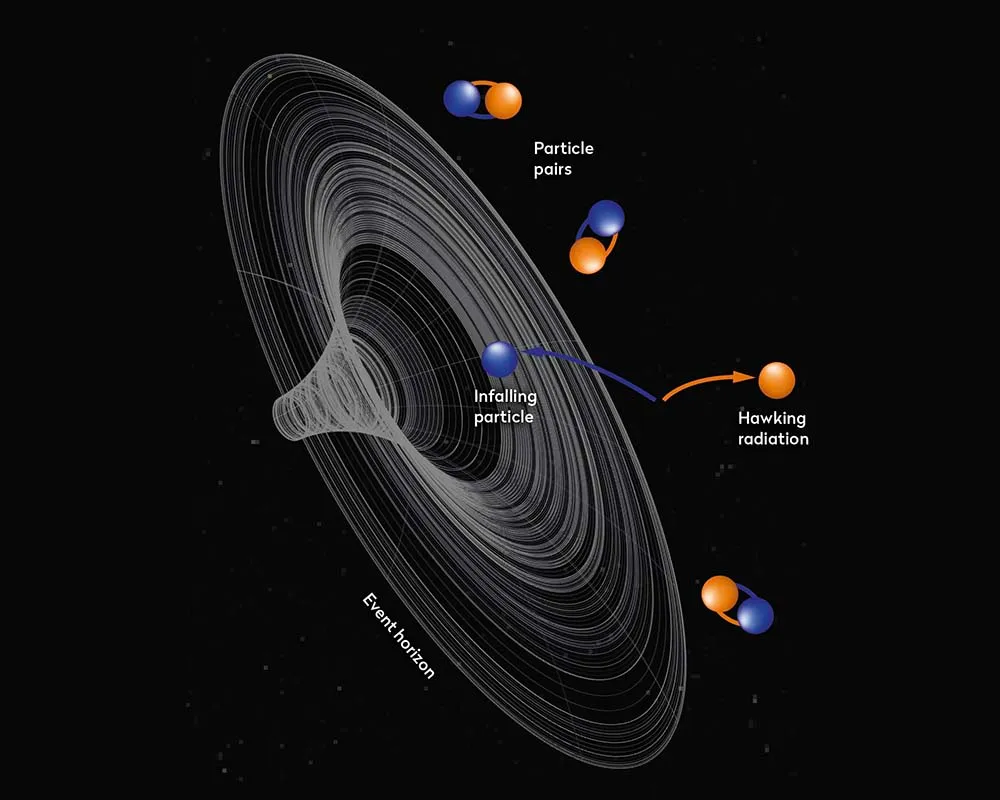Scientists have long predicted that the Universe’s lifetime is effectively forever – specifically, 101100 years.
But scientists from Radboud University have found that the Universe is decaying much quicker than previously thought, calculating that the last remnants of stars will perish in just 1078 years instead.
More mind-bending science

"The ultimate end of the Universe comes much sooner than expected, but fortunately it still takes a very long time," says Heino Falcke, black hole expert and lead scientist on the research.
The researchers arrived at this shorter timeframe by considering evaporation due to Hawking radiation.

Hawking radiation and the end of the Universe
Hawking radiation, proposed by Stephen Hawking in 1974, is a phenomenon where particles and radiation can escape from the immense gravitational pull of a black hole.
If a black hole is emitting particles and radiation, it means that over time it will decay.
Contentious among physicists, the theory implies a rare contradiction with Einstein’s theory of relativity, which suggests black holes can only grow.
The 1078 figure represents the time it would take for a white dwarf star to decay when considering the impact of Hawking radiation.
White dwarfs are the dense, final evolution of stars that aren’t big enough to form black holes or neutron stars, and represent the most long-lived objects in the Universe.

What will the end of the Universe look like?
But what does the end of the Universe look like?
Its ultimate fate is still unclear to scientists, but can be boiled down to three main candidates: freeze, crunch or rip.
The research by Falcke and his team fits into the Big Freeze picture: all the matter and energy in the Universe will eventually evaporate, spreading out into an endless, timeless void (or ‘heat death’).
That’s hardly a cheering thought, but it’s one that shouldn’t give us too much to worry about; 1078 years is still vastly longer than the current age of the Universe from the Big Bang to today: 13.89 years.
The team hope to use this interdisciplinary study – which brought together mathematicians, quantum physicists and astrophysicists – to learn more about the Universe’s mysteries.
"By asking these kinds of questions and looking at extreme cases, we want to better understand the theory, and perhaps one day, we will unravel the mystery of Hawking radiation," concludes Walter van Suijlekom, co-author of the study.

A Universe reboot?
Words: Chris Lintott
Cheer up, there’s no need to let the sooner-than-expected decay of the last stellar remnants get you down!
Even when the cosmos is no more than a sea of expanding radiation and particles, we’ll still get to witness the never-before-seen and incredibly rare process of proton decay play out.
Only once the last proton goes pop will we reach the final state of the Universe.
But, like an ageing movie franchise, the story might not be over.
Some cosmologists believe our Universe might produce daughter universes.
So instead of being stuck in this decaying cosmos, we can jump across to a reboot and experience the exciting first 25 billion years or so again and again and again.
